Prof. Dr. Karin Schnitker
Interdisciplinary, extensive professional experience
In 2009, Karin Schnitker was appointed Professor of Corporate Leadership at Osnabrück University of Applied Sciences. After holding various management positions such as spokeswoman of the Senate of the largest university in Lower Saxony, head of degree programs, dean of studies and also founding representative of the Faculty of Agricultural Sciences and Landscape Architecture and co-project manager of the Startuplab@HS Osnabrück RISE (StartUp!Lab@HSOS | Osnabrück Univerity of Applied Sciences), she is now Dean of the Faculty - she also frequently mentors start-up teams at the university as part of the EXIST funding program and is very active in the area of transfer to industry as co-head of the Open Innovation sub-project in the university's Growth project.
Prior to this, she worked for almost fifteen years in various positions of responsibility in the fields of natural/int. strategic corporate development, business administration and public relations management. One focus was on companies and organizations in the agricultural and food business as well as banks in Germany and abroad. For over 10 years she was jointly responsible for the management and strategic development of an agricultural company. She is a trained banker and studied international agricultural trade and holds a doctorate in agricultural economics.
She has been a member of the expert committee of the Ministry of Climate Protection, Environment, Agriculture and Consumer Protection of the State of North Rhine-Westphalia for the award of grants and research funding under the EU Directive for European Innovation Partnership Agricultural Productivity and Sustainability in NRW, Düsseldorf, since 2014 and Chairwoman since 2023. She is also a member of the Startup Expert Advisory Board of Landwirtschaftliche Rentenbank, Frankfurt, a member of the Startup Advisory Board of the state government of Lower Saxony, a member of the jury of the NBank Founder Award Durchstarterpreis, category Newcomer/Scale Up and start-up mentor of NBank since 2021, a member of the German Agri-Food Society e. V., Berlin and on the advisory board of the family business Beulco GmbH & Co. KG, Attendorn and the start-up NatureRobots GbmH, Osnabrück.
Several years of consulting, teaching and research:
Her consulting, teaching and research initially focused on sustainable and strategic corporate management as well as entrepreneurship and the internationalization of companies. She has since expanded her field of consulting. Her current focus is on agile corporate management in the context of strategic corporate development, intra- and entrepreneurship, innovation processes and business model development using agile methods.
She heads the ‘Reallabor’ Innovation, Entrepreneurship, ‘agile leadership’ in the Food-Future Lab at Osnabrück University of Applied Sciences (Real-world laboratory for innovation, entrepreneurship, and agile leadership | Osnabrück University of Applied Sciences) and various research projects (start-ups). She is also co-project manager of sub-project 3/work package ‘Open Innovation’ in the research/transfer project ‘Growth’ at Osnabrück University of Applied Sciences (Innovative University funding line, BMBF) (Thinking) spaces for innovation | Osnabrück University of Applied Sciences). In both projects, she researches knowledge and innovation transfer through the approach of so-called action research in real business cases in various companies, start-ups and organizations using modern, participatory strategy development and innovation processes and methods. In the Growth project / Open Innovation work package, it focuses on supporting the development and monitoring of system innovations, i.e. innovations that are to be developed by various organizations and their representatives, through individually elaborated process approaches and subsequently researching their effectiveness. This should serve to transfer the knowledge of optimal innovation approaches known in theory into practice.
Furthermore, she was or is academic project manager and mentor in the application of various projects in the application research ‘ForschungsprojekteSU (Startups)’. Since 2017, these have been projects with a duration of 1 - 2 years and a funding volume of between €60 - 200 thousand with the project partners: Bugfoundation GmbH, Monitorfish GmbH, Pflanzentheke GmbH, funded by the Alfons und Brigitte Coppenrath Foundation in Osnabrück and Farmerscent GmbH, funded by the Westfälische Landschaft Foundation in Münster.
- Agricultural/food value chain: Analysis, planning, development and evaluation of investment projects and strategies in companies in primary agricultural production or the agricultural and food industry with a particular focus on identifying and evaluating alternative sources of income or diversification strategies in companies.
- Contract research within the action research approach for the development and research of change management with regard to the introduction and implementation of agile leadership concepts and self-organization structures in teams, organizations and business units in all industries.
- Contract research for the analysis, planning and development of internationalization and innovation strategies for companies in the agricultural and food sectors (creation and evaluation of concepts for innovative and sustainable business models and process and system innovations, analysis of international country/market selection and development of an international market entry strategy) for business start-ups.
- Contract research on environment and impact analyses in the field of new agri/food technologies such as blockchain, precision fermentation, digital business models and general megatrends with regard to the impact of selected business cases and industries through secondary data analysis and selected methods of primary data analysis (individual and focus group interviews).
- Planning, evaluation, and preparation of business start-ups in the agricultural and food industry with regard to economic aspects.
- Contract research on the development of sustainability concepts for selected companies in the agricultural, horticultural, and food industries, with a particular focus on the selection of indicators for evaluating agricultural suppliers.
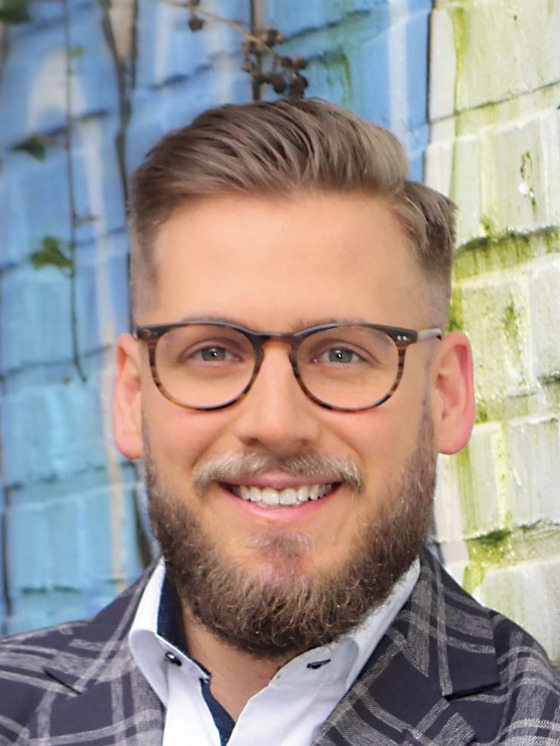
- Dr. Jan Berstermann
Professor of Corporate Leadership in the Agricultural Sector
Founding representative of the Faculty of AuL
Co-head of the Entrepreneurship, Innovation, and Agile Leadership Real-World Laboratory (Food Future Lab | Hochschule Osnabrück)- Visiting adress:
Teaching and Research Center for Food Sciences and Economics
Oldenburger Landstr. 62
49090 Osnabrück - Contact:
Room OS 0106B
Phone: 0049 541 969-5271
Jan.Berstermann@hs-osnabrueck.de
- Visiting adress:
Dr. Jan Berstermann is an industrial engineer and holds a doctorate in economics, specializing in sustainable management. Since 2024, he has held the chair of Agricultural Business Administration and, together with Prof. Dr. Karin Schnitker, heads the Innovation, Entrepreneurship, and Agile Leadership Real-World Laboratory at Osnabrück University of Applied Sciences. Previously, he held teaching positions in areas such as corporate sustainability management, systemic leadership, and fundamentals of human resource management. Between 2015 and 2017, he worked as an organizational consultant for a medium-sized group of companies in the organic food industry. The objective was to implement sustainability-focused corporate management in the core business of the group of companies and to prepare sustainability reporting using innovative approaches. In recent years, he has also been able to implement a wide range of design thinking and open space/innovation formats and organizational constellations in companies of various sizes and industries.
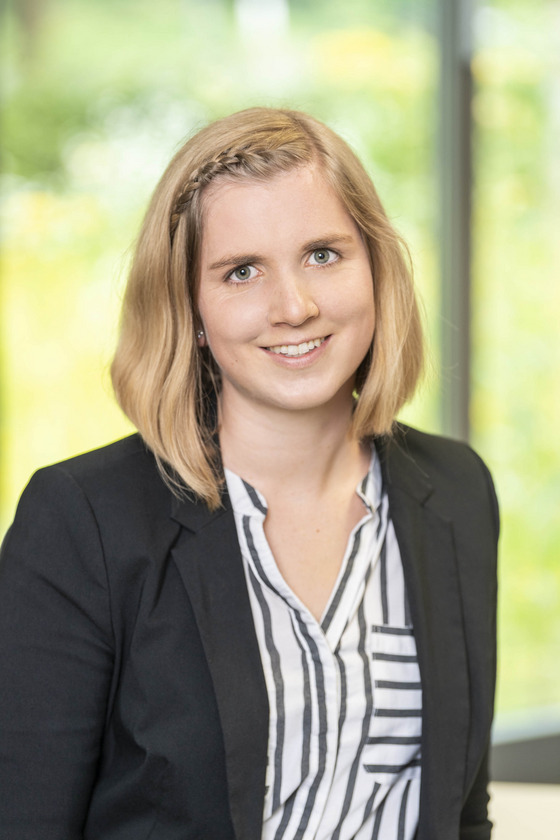
- Lea Prein, M. Sc.
Research assistant in the field of agriculture and food, as well as in the Food Future Lab (Food Future Lab | Hochschule Osnabrück)- Visiting adress:
Teaching and Research Center for Food Sciences and Economics
Oldenburger Landstr. 62
49090 Osnabrück - Contact:
Room OS 0101
Phone: 0049 541 969-5310
l.prein@hs-osnabrueck.de
- Visiting adress:
Lea Prein successfully completed her master's degree in 2021, specializing in business management in the agricultural and food industry. During her studies, she was able to expand her expertise in innovative approaches and methods through design thinking workshops with renowned food manufacturers, among other things. During her semester abroad at the University of Florida, she also got to know American culture and the education system there. She also wrote a project paper on the use of the increasingly popular blockchain technology in the food industry.
Since the beginning of 2021, Ms. Prein has been working as a research assistant in the Department of Business Management at the Faculty of Agricultural Sciences and Landscape Architecture. In addition to coordinating teaching assignments and supervising various student projects, she is also actively involved in knowledge processing within the framework of action research. Furthermore, she is constantly expanding her knowledge through various training courses on topics such as agile working in the digital environment and in innovation processes.
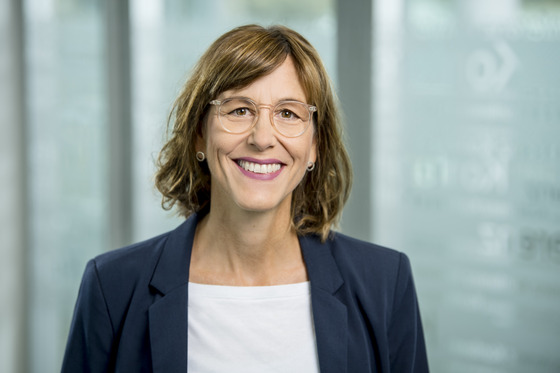
- Dr. Pamela Wehling
Research assistant in the GROWTH research project/Innovative University application, sub-project 3/work package 1 (open innovation) (Growth | Hochschule Osnabrück)- Visiting address:
Teaching and Research Center for Food Sciences and Economics
Oldenburger Landstr. 62
49090 Osnabrück - Contact:
Room OS 0106B
Phone: 0049 541 969-5271
p.wehling@hs-osnabrueck.de
- Visiting address:
Dr. Pamela Wehling ist promovierte Sozialwissenschaftlerin und Diplom Betriebswirtin (BA). Seit August 2023 ist sie Projektmitarbeiterin im Teilvorhaben 3 (Denk-)Räume für Innovationen im Rahmen des GROWTH-Projektes. Ihr Arbeitsschwerpunkt bildet die Durchführung, Begleitung und Evaluation von Personal- sowie Organisationsentwicklungsprozessen.
Forschungserfahrungen hat sie am Institut für Arbeitswissenschaft der Ruhr-Universität Bochum sowie an der Universität Potsdam gesammelt. Die Forschungsinhalte variieren dabei zwischen Themen wie implizite Verträge unterschiedlicher Beschäftigtengruppen, Gerüchte in organisationalen Wandlungsprozessen sowie der Geschlechterdifferenz im Arbeitskontext bis hin zu anwendungsorientierten Themen, wie z. B. die Einführung von Gruppenarbeitsstrukturen im ÖPNV und der Umgang mit Vielfalt in Unternehmen.
Außerdem arbeitet sie als freiberufliche Dozentin an unterschiedlichen Hochschulen.
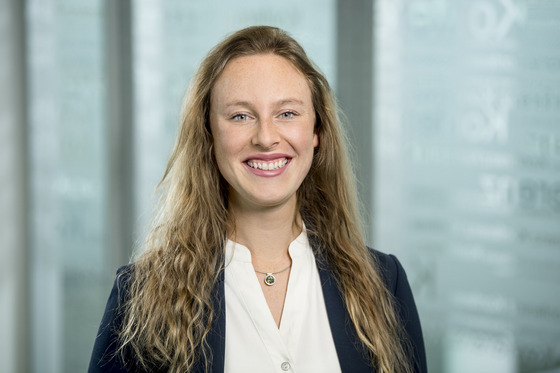
- Annika Tara
Research assistant in the GROWTH research project/Innovative University application, sub-project 3/work package 1 (open innovation) (Growth | Hochschule Osnabrück)- Visiting address:
Teaching and Research Center for Food Sciences and Economics
Oldenburger Landstr. 62
49090 Osnabrück - Contact:
Room OS 0106B
Phone: 0049 541 969-5310
a.tara@hs-osnabrueck.de
- Visiting address:
Annika Tara holds a degree in agricultural engineering (M.Eng. Agricultural and Food Economics). As a research assistant, she has been supporting the GROWTH project in the area of “(Thinking) Spaces for Innovation” since August 2023.
She has experienced and applied innovation and entrepreneurship herself as the co-founder of two start-ups. The first start-up developed a drinking reminder for seniors, and after the test phase, the product was integrated into a larger company in Lower Saxony. The second start-up sold sustainable stationery according to the 1+1 principle (for every product sold, another was donated), and this project is also being continued within a larger company.
Ms. Tara also trained as a design thinking and life design coach, enabling her to conduct a wide range of design thinking workshop formats with different groups and in cooperation with companies of various sizes and industries.
During her studies and her start-ups, she received funding from the sdw (German Economy Foundation) and the NRW Start-up Grant.
In recent years, she has also worked in public relations and as an assistant to the management at a foundation for agriculture.
Various stays abroad in New Zealand, Florida, Africa, and Spain have given her different perspectives within agricultural sciences and agriculture, such as different cultivation systems, innovative practices, and practical experience in agriculture.
Ms. Tara now brings this experience to the university and the GROWTH project.
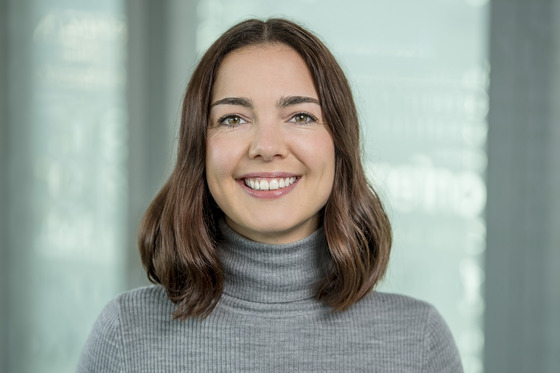
- Jana von Höne
Co-Team leader StartUp!Lap@HSOS (StartUp!Lab | Hochschule Osnabrück)- Visiting address:
Startuplab@HSOS
Am Speicher 4
49090 Osnabrück - Contact:
Room EA 0034
j.von-hoene@hs-osnabrueck.de
- Visiting address:
Since early 2023, Jana von Höne has been working at Osnabrück University of Applied Sciences as a research assistant and co-team leader of StartUp!Lab@HSOS. Her work focuses on strategic and operational areas, marketing and network development, and supporting those interested in starting their own businesses through workshops and coaching sessions. Previously, she held positions in various start-ups and a start-up investment company. Her main areas of activity included international business development, marketing, and innovation management. Several years spent abroad in the USA, Australia, and France trained her eye for and skills in intercultural and interdisciplinary cooperation between people. In addition to her bachelor's degree in International Business Administration and Management from Osnabrück University of Applied Sciences, she completed her MBA in Innovation Management and Entrepreneurship at Carl von Ossietzky University in Oldenburg. This allowed her to refine her expertise in areas such as methodical invention, business model development, and creative approaches to innovation management.
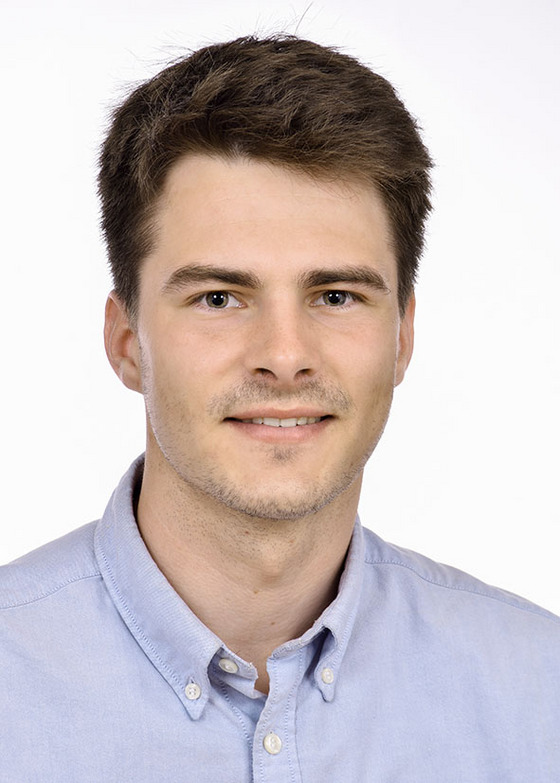
- Jonas Schöne
Research assistant in the field of corporate leadership and in the GROWTH research project/Innovative University application, sub-project 3/work package 1 (open innovation)(Growth | Hochschule Osnabrück)- Visiting adress:
Teaching and Research Center for Food Sciences and Economics
Oldenburger Landstr. 62
49090 Osnabrück - Kontaktdaten:
Room OS 0106B
jonas.schoene@hs-osnabrueck.de | Linkedin
- Visiting adress:
Jonas Schöne holds a master's degree in industrial engineering (M.Eng.) with a focus on business management. Since mid-2025, he has been working as a research assistant in the Business Management department and is also involved in the GROWTH research project's Open Innovation sub-project.
Prior to this, he gained several years of experience in the strategic division of an agricultural technology group. His professional focus was particularly on future technologies. In this context, he supported innovation processes, evaluated technological trends, and worked on the strategic development of corresponding systems. In addition, he gained experience in startup scouting and innovation management and evaluated new business models. He now brings this knowledge and the skills he has acquired to the university.
2024 Bachelor's theses
- Schönges, F.: Qualitative analysis of critical success factors and current payment terms for venture capital for agritech startups in the US and Germany.
- Lahmann, A.: Strategy formulation and evaluation for investment in an agri-PV system by the case company Lahmann.
- Rüth, J.: Identification and selection of operational measures and incentive systems to promote employee motivation. An empirical study using the example of Froneri Ice Cream Deutschland GmbH.
2023 Master's theses
- Schürholz, C.: Development and analysis of a foreign market entry strategy for an innovative platform economy business model for brokering biomethane, using the case study of agriportance GmbH.
- Schmidt, S.: Influence of drinking water disinfection based on active chlorine on selected performance, health, and fertility parameters of high-yielding cows.
- Tara, A.: Development of a value proposition “Coaching for riders with their horses” and process evaluation using qualitative methods.
- Von Höne, J.: Creation of a value proposition for selected target and stakeholder groups of a StartUp!Lab using the case study of Osnabrück University of Applied Sciences.
2023 R&D Projects – Master's Program
- Schürholz, C.: Market launch of the “Oximat” in-situ disinfection system by the case company Beulco GmbH & Co. KG, Attendorn.
- Tara, A.: Process evaluation of a life design thinking coaching program.
2023 Bachelor's theses
- Herick, J.: Analysis of selected scenarios for renewable energy production in Germany with regard to agricultural land use, CO² efficiency, and economic viability.
- Viehweg, L.: Scenario analysis for an agri-photovoltaic system using the example of an outdoor area used for ornamental plant cultivation at the Viehweg nursery.
- Althöfer, A.: Feasibility analysis for the diversification strategy of potato cultivation at the Althöfer farm.
- Brinkmann, H.: Feasibility analysis of a business idea and investment in a fiber digestion plant based on hemp straw for the Brinkmann Landwirtschaft GbR case study.
- Koch, S.: Strategic situation analysis and strategy formulation for the case company Koch, Garbsen.
- Schillingmann, L.: Development of a sales and marketing strategy for BioStrategie using qualitative research methods.
- Kurz, L.: Feasibility analysis of a scaling strategy using the example of the case company Heidjer Produktions- und Vertriebs GbR.
- Lehrke, S.: Analysis of the use of recycled polystyrene in the material cycle for dessert packaging with direct contact for the case company Zott SE & Co. KG.
- Rehwinkel, L.: Feasibility analysis for the development of a renewable storage power plant including a local heating network, using the case study of Rehwinkel/Meyer Biogas Stelle GmbH & Co. KG.
- Brunkhorst, W.: Development and evaluation of renewable cultivation strategies for the arable farming business unit using the example of the case company Brunkhorst GbR, Lüdersfeld.
- Peters, M.: Customer-centric requirements analysis for the development of a camera-based AI system for health monitoring in dairy farming, using ACARiS GmbH as a case study.
- Schulze Hockenbeck, F.: Analysis of CO2 storage options for FLAG emissions from milk production for sustainability assessment for the case company Zott SE & Co.KG.
- Koldehoff, E.: The importance of leadership in food retail: An analysis of store manager changes and operational impacts using the case study of a regional discount store chain.
- Arkenau, P.: Factors influencing personnel costs and measures to reduce absenteeism at Gartencenter Arkenau GmbH.
- Ostendorf, H.: Development and preliminary assessment of a business model for processing and marketing chickpeas and lupins.
2022 Master's theses
Pribbernow, H.: Evaluation of founding a consulting company for open-space photovoltaic systems by creating a business plan and testing via focus group discussions.
Kruse, M.: Development and testing of a business model for an expert network in the food service industry based on an iterative-participatory design process.
2022 Bachelor's theses
Bußmann, M.: Development of a business idea for the digital marketing of regionally produced food based on the Business Model Canvas, including qualitative testing.
Krone, P. B.: Feasibility analysis of a business model strategy for an open-space photovoltaic system for the case company Reinhard Krone in Damme.
Homeyer, L.: Impact analysis of sourcing broiler meat according to the European Broiler Initiative standard at the case company apetito AG to derive potential sourcing strategy alternatives.
Mackenstedt, N.: How does innovation emerge? Influence of Theory U principles on the success of change processes in selected agricultural companies.
Stelloh, F.: Formulation and evaluation of operational strategies for the biogas branch of the case company Stelloh.
Schröder, F.: Usability analysis of the "Agrar-Klimacheck-Programm" for calculating the climate footprint of agricultural operations of DMK Deutsches Milchkontor GmbH.
Kortstiege, K.: Feasibility analysis of developing a fattening pig barn conforming to husbandry levels 3/4 using the example of the Kortstiege case farm.
Meyer zu Farwick, R.: Feasibility analysis for converting a biogas plant from combined heat and power to fuel production, using the example of the Meyer zu Farwick farm.
Hüneke, L.: Strategic situation analysis and derivation of development strategies based on the case company Johann Hüneke.
Ostermann, H.: Strategic goal setting and situation analysis of the agricultural business Heinrich Ostermann and existing cooperations.
Börger, J.: Determination of future strategies based on a strategic situation analysis using the case company Cord Börger Landwirtschaft.
Beutner, C.: Creation of a software-based model for cost assessment of CO₂-reducing measures in agricultural machinery drive technology and associated infrastructure.
Brinkmann, M.: Crisis experiences in agriculture: A qualitative analysis of the impact of the COVID-19 pandemic on direct marketers.
Witte, J.: Strategic situation analysis using the case study of the agricultural business Rolf Witte.
2021 Master's Theses
Ostendorf, J.: Strategic situation analysis of the EU sustainability policy for impact assessment for CLAAS KGaA mbH.
Prein, L.: National differentiation and implementation of a specific delivery surcharge as part of introducing a pricing and condition system.
Jungclas, J.: Formulation and testing of a product development strategy by vitaminizing and mineralizing meat substitutes at the case company Lohmann & Co. AG, based on secondary data analysis and expert interviews.
2021 R&D Projects – Master's Program
Pribbernow, H.: Usability study of the Corvitac Pig-Counter using selected practical farms.
Jungclas, J.: Feasibility study of a central business model for Redefine Meat in cooperation with the PHW Group.
Thye, E.: Development of an internationalization strategy for the startup SeedForward GmbH for the EU.
2021 Bachelor's Theses
Von Kamp, S.: Strategic situation analysis using the case of the dairy farm Olaf von Kamp.
Lohmann, F.: Feasibility analysis of the differentiation strategy "pig fattening on straw" using the case company Lohmann.
Twehus, A.: Participatory development of a project management approach in dynamic companies using the example of PWA Dr. Haufe GmbH.
Nicklas, F.: Feasibility analysis of a startup for the production of "real truffles" based on selected business plan aspects.
Dopatka, L.: Strategic goal setting and situation analysis of the Werner Dopatka farm.
Große Macke, V.: Development of a startup-compatible, scaling-oriented market entry strategy for an AgriTech innovation in Germany using the example of Farmerscent GmbH.
Raulfs, H.: Strategic goal planning and situation analysis of the Raulfs agricultural business.
Köhler, C.: Analysis and evaluation of selected international markets in preparation for the market launch of a precision fish-farming technology using the example of the startup MonitorFish GmbH.
Deniz, E.: Benchmark analysis of selected workshops for people with disabilities in the food processing sector to derive recommendations for sustainability positioning.
2020 Master's Theses
Dörries, A.: Conceptualization of an employer brand for a horticultural business in a rural area.
Schuldt, C.: Analysis of the so-called Split Feeding concept of the Dutch company ForFarmers N.V. for developing an acceptance-oriented sales strategy for laying hen farms in Northwest Germany.
Pribbernow, L.: Analysis, strategy development, and evaluation for establishing an e-commerce sales channel using the example of "Bäckerei Bertermann".
2020 R&D Projects – Master's Program
Lenfort, D.: Potential analysis of sales promotion at CLAAS Vertriebsgesellschaft mbH.
Ites, S.: Analysis and identification of healthy nutrition factors considering declaration options for product development in the field of “healthy protein snacks”.
Bommes, C.: Evaluation of a mentoring service with strategy development in the case company using qualitative interview methodology.
Strothmeyer, F.: Competitor analysis and identification of the optimal value proposition for a recruitment agency using the example of the company Farmconnect.
Prein, L.: Comparison of blockchain solution approaches in selected international food value chains using a competitive analysis.
Frings, S.: Development and testing of a prototype “online coaching & consulting service for artisanal food producers” using the example of Sophie Frings Coaching & Beratung.
Baum, D.: Analysis of the production flow and legal feasibility regarding internationalization using the case study of iVIK Holdings Ltd.
2020 Bachelor's Theses
Tellbrügge, T.: Feasibility analysis of a diversification strategy for calf rearing using the example of the Tellbrügge farm.
Jansen, P.: Analysis of establishing a direct marketing channel for beef and identifying sales strategies using the example of the Jansen farm.
Moyzes, C.: Analysis of customer acceptance barriers in the market launch of innovative digital service solutions using the example of the telemetry system AGCO Connect.
Deters, F.: Profitability analysis of a cattle bone separation plant for the production of MDM for the pet food industry – business evaluation using the case of Westfleisch SEC mbH.
Strothmeyer, F.: Business acquisition analysis and strategy development for "Farmconnect" based on a business plan.
Baum, D.: Business and potential analysis for the strategic development of the company Neurather Gärtner GbR through sustainable energy supply.
Von Handorff, M.: Analysis of the relevance of health-promoting objectives and activities in sustainability strategies of selected companies in Germany.
Notemann, T.: Analysis and definition of a value proposition design using the case study of producing healthy and sustainable ready meals.
Meyer, M.: Analysis of customer requirements for bakeries with regard to digital interaction potentials.
Dieckmann, A.: Comparative profitability calculation of animal welfare and protection measures in selected case companies with dairy farming using scenario analysis.
Hadler, C.: Formulation and economic evaluation of the diversification strategy "apple cultivation" using the example of the Hadler farm in Cuxhaven-Altenbruch.
2019 Doctoral Dissertation
Berstermann, J.: Stakeholder-based identification and selection of sustainability indicators – case study and system setup in an organic food company.
2019 Master's Theses
Loch, J.: Feasibility analysis of using agile project management methods based on the case study “Optimization of the labeling system at AVO-Werke August Beisse GmbH”.
Steinhorst, J.: Feasibility analysis of selected diversification strategies for the Steinhorst farm in Glandorf.
Meyer, K.: Analysis, evaluation, and planning of the business idea “Calcium- and protein-rich milk product for children” using a business plan.
2019 R&D Projects – Master's Program
Duden, M.: Business evaluation of selected development alternatives for the Duden agricultural business.
Pribbernow, L.: Potential analysis of a possible business start-up in the service sector for podcast and video production.
Dörries, A.: Reinventing Blumen Dörries.
Steinhorst, J.: Strategic situation analysis of the Steinhorst farm in Glandorf as the basis for a strategic development process.
Welk, A.: Development of an international market entry strategy for the “Flüssigfonds” product line in Northern and Western Europe.
2019 Bachelor's Theses
Borchers, J.: Development of hypotheses as a foundation for advisory services regarding non-family farm succession based on a qualitative survey.
Bömer, M.: Identification and analysis of strategic and structural success factors in a startup’s cooperation with a corporation in the field of digital sales of used agricultural machinery using a case study.
Viola, J.M.: Toxin binder market assessment of selected Latin American countries for MIAVIT GmbH.
Geerken, J.E.: Feasibility analysis for the carbonization of regionally sourced biomass via a pyrolysis plant by manufacturer gara energy GmbH.
von Behr, A.: Development of a business plan to evaluate an investment strategy in residential construction on the von Behr farm in Hoya.
Heil, F.: Feasibility analysis of the diversification strategy “on-farm dairy processing” at the Heil family farm.
2018 Master's Theses
Welk, A.: Analysis and development of a product management concept for interface management at Rila Feinkost-Importe GmbH & Co. KG considering agile leadership principles.
Kemper, S.: Business model formulation and its financial feasibility for relocating the business segment “boarding horse stables” using the example of the agricultural company Christian Kemper in Neuss Uedesheim.
2018 R&D Projects – Master's Program
Meyer, K.: Strategic situation analysis of the Brokering dairy farm.
Kemper, S.: Strategic market analysis focusing on customers and competition for boarding horse stables in the Neuss–Düsseldorf–Dormagen area in the context of relocating part of the Christian Kemper family business in Neuss-Uedesheim.
Loch, J.: Analysis of the U.S. spice market.
2018 Bachelor's Theses
Strothmeyer, F.: Potential analysis and market entry preparation for a sustainably produced agave syrup from Mexico into the German market using the startup Schäpers as a case study.
Baum, D.: Analysis and identification of success factors for attractive employers of seasonal harvest workers from Eastern Europe using the example of Neurather Gärtner GbR.
Müller, C.: Strategic situation analysis and development of optimization strategies using the example of the ice cream production division at Müller.
Timme, S.: Strategic goal setting and situation analysis involving internal company stakeholders using the example of the Timme company.
Niemann, F.: Analysis and concept for market entry of an innovative packaging technology developed by the DIL research institute.
2017 Master's Theses
Pötschke, C.: Analysis and planning of the establishment of an e-commerce distribution channel using the example of GartenCenter Pötschke.
Heitmeyer, M.: Feasibility analysis for a startup venture in the biologically appropriate raw food (BARF) sector by Steinemann GmbH & Co. KG.
Knopp, E.: Feasibility analysis for a startup venture in the biologically appropriate raw food (BARF) sector by Steinemann GmbH & Co. KG.
Schmelting, A.: Feasibility study on a diversification strategy “Production and sale of buffalo worms” on a farm.
Ehemann, S.: Human rights in Bayer AG’s value chain – Inventory of due diligence activities and development of recommendations for action.
2017 R&D Projects – Master's Program
Lübben, J.: Identification of strengths and weaknesses of the AMRA tool through a pilot implementation in livestock transports for a regional meat producer.
Ruholl, H.E.: Examination of the VR agricultural rating criteria for developing proposals for a future-oriented agricultural rating system.
Sickmann, M.: Identification of key information sources in the current CLAAS transaction process.
2017 Bachelor's Theses
von Aschwege, D.: Analysis of life cycle assessments of selected dairy farms to identify optimization potential for the sustainability program “Milkmaster” by Deutsches Milchkontor GmbH.
Manocchio, D.: Comparative analysis of success factors and potential in the value chain of beef cuts and by-products using the example of a meat processing company.
Gerling, T.: Development and analysis of strategic development options for the Gerling farm.
Grobe, F.: Strategic situation analysis of the Grobe family farming business.
Heidemann, K.: Development and evaluation of a business plan to establish a regional campus beer brand in Osnabrück.
Stärk, S.: Market analysis for slurry drag hose systems for a company in the agricultural engineering industry.
Timphaus, H.: Economic analysis of an investment to increase flexibility in the biogas plant operated by Timphaus Renewable Energy.
Niebur-Ossenbeck, H.: Economic analysis of an investment in a small biogas plant using the example of the Niebur-Ossenbeck farm.
Ruhe, J.: Strategic situation analysis of the Ruhe family farm as a basis for developing future-oriented business strategies.
Kötting, W.: Feasibility analysis of an e-commerce concept for selling specialty animal feed in the Kenyan market using MIAVIT GmbH as a case study.
2016 Master's Theses
Jan-Krift, K.: Analysis of the farm succession advisory process of the Westphalia-Lippe Farmers’ Association to identify the potential of a holistic consulting approach.
Kurre, H.: Study on the implementation and use of an environmental sensor system in agricultural machinery for Bosch Engineering GmbH (BEG).
Hüsing, C.: Analysis and evaluation of the feasibility of founding a company in the food e-commerce sector using the startup Green Farmer GmbH as an example.
2016 R&D Projects – Master's Program
Verst, C.: Development of a dealer scorecard for CLAAS dealers in the North American agricultural machinery market based on KPI analysis.
Ehemann, S.: Inventory of relevant sustainability aspects, with a focus on land use and wastewater management, among selected milk suppliers of Claldy (Compañia Láctea Agropecuaria Lecheros de Young) in Uruguay.
Heitmeyer, M.: Analysis and evaluation of the market potential for selected Steinemann GmbH & Co. KG products in international markets.
Knopp, E.: Analysis and evaluation of the market potential for selected Steinemann GmbH & Co. KG products in international markets.
Jan-Krift, K.: Analysis and evaluation of a consulting concept and its individual tools.
Hüsing, C.: Investigation and determination of the direct exporting possibilities of soybean meal in the international raw material market between Buratovich hnos. S.A. (ARG) and AGRAVIS AG (GER).
Schmelting, A.: Feasibility analysis of a diversification strategy for the Schmelting farm involving the production and sale of cat accessories containing valerian.
2016 Bachelor's Theses
Irmer, S.: Analysis of image-related factors and actions that influence employee recruitment and retention in selected companies in the food industry.
Steinkamp, C.: Analysis of the congruency of VW AG’s GRI-certified sustainability goals with the UN SDG Compass.
Krümpel, J.: Analysis of the income potential of Bernhard Krümpel’s farm through a change in the production cycle in pig farming.
Greitemann, J.F.: Business analysis and planning for an expansion investment in dairy farming on the Greitemann farm.
Francksen, J.O.: Business analysis and planning for an expansion investment on the Francksen GbR dairy farm.
Göcke, C.: Analysis of sustainability reporting of selected competitors of AGRAVIS Raiffeisen AG in the agricultural trade sector.
Weseloh, J.C.: Development of a business plan to assess a flexibility strategy for the Weseloh biogas plant in Vahlzen.
2015 Master's Theses
Hegge, M.: Development and implementation of an internationalization strategy in the animal feed sector for the U.S. market using MIAVIT GmbH as an example.
Baum, B.: Strategic planning and assessment of the horticultural company Wilhelm Baum.
Timphus, C.: Development of a supplier evaluation system using the Delphi method based on the example of Wernsing Feinkost GmbH.
Winkelmeyer, A.: Implementation of a sustainability standard in food logistics for the model company Matthies und Söhne Fruchtimport GmbH based on a comparative analysis.
Claßen, J.: Economic analysis of the construction of a goose slaughterhouse based on a business plan.
Karfich, A.: Planning and economic analysis of a production site for a startup company specializing in innovative food preservation methods.
Waldow, L.: Development of a market entry and development strategy for agricultural internet agencies using the startup Web-Acker as an example.
Laurenz, B.: Formulation and evaluation of potential milk and dairy product procurement strategies using a German retail company as a case study.
2015 R&D Projects – Master's Program
Kurre, H.: Analysis of the potential use of automotive sensors and systems in agricultural outdoor machinery for an automotive company.
Baum, B.: Strategic analysis of the horticultural company Wilhelm Baum.
Hegge, M.: Development and implementation of an international market entry concept for a franchise system using Coffee-Bike GmbH as an example.
2015 Bachelor's Theses
Borchers, H.: Economic analysis of a growth strategy in organic milk production using the example of the Hermann Borchers farm.
Ottmann, T.: Comparative analysis of selected agricultural university trade fairs in relation to employer branding and recruiting objectives of participating companies.
Böker, M.: Strategic business analysis of sales and development of sales strategy alternatives using the example of a delivery wholesaler for hotels, restaurants, and catering services.
Wieneke, K.: Analysis of strategic development potential in boarding horse stables using the Gröner-Wieneke farm as an example.
Seul, D.: Economic assessment of introducing high pressure preservation in a large cattle meat center.
Fischer, R.: Market entry analysis and planning for convenience sausage products in Thailand using Steinemann GmbH & Co. KG as an example.
Lenfers, C.: Development of a press and public relations strategy for selected stakeholders of DMK’s Milkmaster program.
Nolte, M.: Market potential analysis for exporting frozen spinach to Denmark.
Möllers, B.: Business plan for evaluating and planning an international market entry strategy via the acquisition of an arable farming business in Romania.
Esser, M.: Analysis of climate change-related changes in the global green coffee market for deriving procurement strategy alternatives for German coffee producers.
Banzhaf, J.: Strategy development for the German online food retail sector based on analysis of the congruency of customer and product requirements with system capabilities of selected companies.
Meiners, F.: Strategic development of a riding school and vacation rental business on the Rumlerhof farm.
Dreses, F.: Strategic business concept for establishing an agricultural production company in the Russian exclave of Kaliningrad (Bagratinovsk region).
Bußjan, T.: Evaluation of qualitative parameters of the VR Agricultural Rating by the Federal Association of German Cooperative Banks in the area of the WGZ BANK AG.
Fennel, F.: Business analysis and investment planning for a grain storage facility at SIA Skriveru Seklkopibas Sabiedriba farm in Latvia.
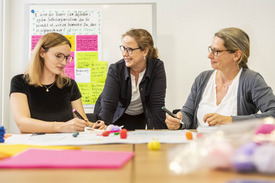
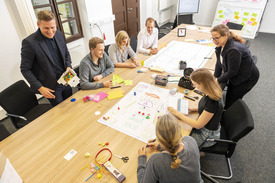
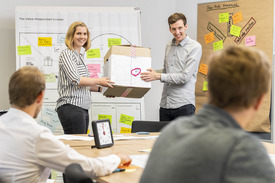
Bachelor modules
Agri-Food Engineering and Business (B.Eng.)
International Trade (Elective module taught in English during the winter semester)
This module is taught in English. It covers the practical implementation of international trade in goods in the agricultural and food industry. Students gain a fundamental insight into the practice of international management and basic knowledge about how companies prepare for internationalization. The module also provides an overview of important agricultural markets and trade flows. Module description
Product and Innovation Management (Elective module taught in English during the summer semester)
The module consists of three course components. The course component Innovation Management is taught by Prof. Dr. Schnitker. Students gain in-depth knowledge of different types of innovations, their evaluation, and their significance for companies. They are introduced to the key success factors in innovation management as well as to corporate, organizational, and team cultures that foster innovation success. The course includes a Design Thinking workshop—an agile innovation method for the interdisciplinary development of innovations from idea to prototype. Other lecturers in this module are Prof. Dr. Enneking and Dr. Martin Kern. Module description
Basics of Sustainability Management (Elective module held in the summer semester)
Sustainable management is an important point of reference for many companies, agricultural businesses, and other organizations in the agricultural and food industry when it comes to shaping their business models. This is also because they are confronted with corresponding external social expectations. When introducing new products and processes, implementing investment projects, or making other strategic decisions, consideration of sustainability aspects can be an important factor in gaining the acceptance of stakeholders. In the following course, students will gain an overview of the goals and methods of sustainability management based on relevant literature and practical examples. They will learn about the different stakeholder perspectives, motives, and backgrounds of certain argumentation patterns. In addition, they will use case studies to explore the concrete possibilities and limitations of sustainable management. Prof. Dr. Kussin is another instructor in this module. Module description
Entrepreneurship and Finances (Elective module held in the winter semester)
In mature market economies, in the agricultural and food sector, and especially in primary agricultural production, it is becoming increasingly difficult to grow (quantitatively) in traditional business areas unless international markets are tapped. Existing companies are increasingly pursuing diversification strategies, and non-entrepreneurs are starting businesses in this sector. Starting a business presents many challenges. First, a good business idea must be found, but a founder must also have knowledge in the areas of management, risk hedging, and financing in order to start a business successfully. Module description
Basics of Human Ressource Management (Elective module held in the winter semester)
Industrial engineers and engineers in the agricultural and food industry, as well as managers of family farms, are increasingly finding themselves in a position where they are responsible for managing staff or organizing a workforce shortly after graduating. This requires a basic knowledge of labor law, recruitment, personnel organization, and development, as employees are one of the most important factors in a company's success. In addition, every graduate will sooner or later take on a managerial role. Here, too, it is important to have a basic understanding of personnel organization and the rights of employees and employers. Other instructors in this module are Dr. Abramovski and Ms. Epping. Module description
Business and Communications Management (Compulsory module held in summer semester)
Managers must be able to assess developments in the economic environment and prepare and implement measures in their own area of responsibility in a targeted and strategically sensible manner. Professional management of a company has a significant influence on its success and the sustainability of its business activities. Medium- to long-term strategic management is one of the foundations that influences all areas of corporate management. Regular communication with internal and external stakeholders is also becoming increasingly important for managers. Strategically designed communication management can help to shape these processes professionally and thus contribute positively to the success of the company. Another lecturer in this module is Prof. Dr. Kussin. Module description
Master modules
Agriculture, Food Science and Business (M.Eng.)
Innovative Management and Entrepreneurship (Compulsory module held in summer semester)
In a complex, dynamic, volatile world and in often saturated markets, companies face the particular challenge of managing and developing a business. These challenges lie primarily in motivating employees to perform at their best on a consistent basis and in driving innovation. This also applies to starting a business. This module therefore aims to teach meaningful, agile forms of business management and the basics of starting a business. Module description
International Management (Compulsory module held in winter semester)
This module addresses strategic corporate development tasks with regard to operations in international sales and procurement markets in the agricultural and food industry. Module description
Leadership cources (Compulsory module held in winter semester)
The concept behind this module is to prepare you for leadership and self-management tasks in practice. The course also serves as a supplement to basic leadership content that you probably have not yet covered in your bachelor's program. The focus is on transferring and applying knowledge in individual/group exercises in the seminars.
The module is also available to students enrolled in the Applied Livestock and Crop Sciences (M.Sc.) program.
Research projectSU with the cooperation partner Pflanzentheke
supported by the Alfons und Brigitte Coppenrath Stiftung Foundation Osnabrück: Final report on the funding of research activities at Osnabrück University of Applied Sciences by the Aloys & Brigitte Coppenrath Foundation under the academic project leadership of Prof. Dr. Karin Schnitker.
The full final report of the research project is available from Prof. Dr. Karin Schnitker upon request.
Research projectSU Hydroponic Outdoor Farm – Development of the micro farm prototype with the case company Pflanzentheke GmbH
supported by the Alfons und Brigitte Coppenrath Foundation Osnabrück: Development of a micro-farm prototype in the field of outdoor hydroponic farming for the resource-efficient and climate-resilient cultivation of fruit and vegetables. Pflanzentheke GmbH and the “Growing Knowledge” working group at Osnabrück University of Applied Sciences are engaged in vertical farming, with a particular focus on hydroponics. Hydroponic vertical farming refers to the cultivation of plants without the use of soil. Hydroponic cultivation usually takes place under controlled environmental conditions (plant factories) and therefore requires a high amount of energy. In contrast, they are pursuing cultivation in semi-protected outdoor cultivation in order to avoid the high energy consumption.
The overarching goal of the start-up and innovation project is the efficient, sustainable, decentralized, independent, and local production of agricultural food using vertical cultivation systems and hydroponic (soilless) cultivation techniques to promote climate-resilient and socioeconomically fair food production. This requires a few steps in advance. One of these is the development and testing of the micro-farm prototype, which is being carried out as part of this research project. The market entry strategy is also being prepared.
Research project within the framework of the Innovative University - GROWTH application: (transfer application by Osnabrück University of Applied Sciences), subproject 3 – Think tanks for innovation, work package 1 – Measures for testing and implementing Open Innovation
Objective of the subproject:
In order to strengthen the necessary capacity for transformation and innovation in the region, innovation-promoting activities and formats from the Creative Lab of the Science Communication Workshop are to be tested in order to support small and medium-sized enterprises and agricultural businesses in particular in initiating and advancing technological developments, withstanding the increased pressure for change, and thus remaining competitive. Both measures will take place at the permanent, decentralized Innovation!Roots locations.
Measure for testing and implementing open innovation:
Open innovation processes will be tested in order to drive innovation processes forward. Open innovation describes the opening up of the operational innovation process to external actors for the purpose of sharing and expanding the company's knowledge base. The basic prerequisites for open innovation are a balanced relationship between benefits and contributions, a relationship of trust, and neutral management of the open innovation process. Here, universities can contribute to the development of sustainable, regional innovation networks with their scientific, non-commercial orientation.
Within the framework of GROWTH, such processes are to be carried out in four fields of action using selected open innovation methods (such as Open Space Beta) as examples. Different open innovation methods will be tested and compared in their application in the university context.
The aim is to develop a systematic approach to open innovation in transfer at universities. The digital platform HowSpace will also be used to test hybrid workshop formats in OI processes.
Research project within the framework of the Food Future Lab's real-world laboratory for entrepreneurship, innovation management, and agile leadership
Details of the projects are presented on this website: Real-world laboratory for innovation, entrepreneurship, and agile leadership | Osnabrück University of Applied Sciences
Research projectSU NoFoInse with the case company Bugfoundation
supported by the Alfons and Brigitte Coppenrath Foundation Osnabrück: Best Practice – The successful market launch of novel food products using the example of insect-based foods in Germany under the scientific supervision and academic direction of Prof. Dr. Karin Schnitker.
The complete final report of the research project can be obtained from Prof. Dr. Karin Schnitker.
Research projectSU Smartfish with the case company Monitorfish
supported by the Alfons und Brigitte Coppenrath Foundation Osnabrück: Development and market launch of an artificial intelligence-controlled fish farming facility and prototype development in collaboration with a research consortium comprising Monitorfish, Osnabrück University of Applied Sciences, GIZ, Cosco Shipping, and others, under the academic leadership of Prof. Dr. Karin Schnitker.
The complete final report on the research project can be obtained from Prof. Dr. Karin Schnitker.
Research project SU with the case company Farmerscent
supported by the Westfälische Landschaft Foundation, Münster: Development and evaluation of a market launch strategy for an innovative technical solution in the field of air climate in stables under the scientific supervision and academic direction of Prof. Dr. Karin Schnitker. The case company's innovation was developed by student Victor große Macke and Osnabrück University of Applied Sciences graduate Alexander Grunwald.
The complete final report on the research project can be obtained from Prof. Dr. Karin Schnitker.
Research project on the potential of blockchain and other technologies in the food value chain
developed through collaboration with QS and Osnabrück University of Applied Sciences (Schnitker, K.; Kemper, S.)
Dean of the Faculty of Agricultural Sciences and Landscape Architecture
Prof. Dr. Karin Schnitker has been Dean of the Faculty of Agricultural Sciences and Landscape Architecture since March 2025. She was elected for a four-year term. Prior to this, she served as Dean of Studies from 2023 to 2025 alongside Prof. Dr. Cord Petermann and Prof. Dr. Ralf Wassmuth. Deanery | Osnabrück University of Applied Sciences
Co-Project Lead of the RISE StartUp!Lab at Osnabrück University of Applied Sciences
RISE (Room for Innovation and Student Empowerment) is a contact point for students and employees at Osnabrück University of Applied Sciences. The aim of this initiative is to support people with resources and expertise in the development of (start-up) ideas and/or their further development. The focus of this start-up support project is on the pre-start-up phase. Prof. Dr. Karin Schnitker and her colleague Prof. Johannes Nehls are jointly responsible for the application and implementation of the RISE StartUp!Lab@HSOS. RISE
Advisory board member of the Lower Saxony government's startup initiative Niedersachsen.next (Startup Advisory Board of the State of Lower Saxony) (since January 2025)
Under the leadership of Chairman Olaf Lies, Lower Saxony's Minister for Economic Affairs, Transport, Construction, and Digitalization, a 12-member advisory board was formed in 2017 to advise the state government and the Niedersachsen.next initiative across all ministries/departments on issues relating to various start-up activities and funding, as well as transfer. The state of Lower Saxony has launched a targeted strategy with the start-up initiative through the non-partisan, cross-legislative start-up advisory board. There is particularly close cooperation between the advisory board, the state initiative, and the ministries of economics and science on the development of the state's start-up strategy and for initiatives at the federal level. The goal is to further develop a comprehensive startup ecosystem with low-threshold access to support services after a successful establishment. Cooperation with SMEs, universities, and consultant networks takes place on a regular basis. Funding priorities for greater impact through deep tech are the areas of mobility, energy, food & agriculture, life sciences, security, and production. Advisory Board members - Startup.Niedersachsen
Member of the Advisory Board of Nature Robots GmbH, Osnabrück
Together with six other colleagues from the scientific community, Prof. Dr. Karin Schnitker is a member of the advisory board of the Osnabrück-based start-up. The founders want to promote regenerative, ecological, and, in particular, small-scale agriculture through AI and robotics in harmony with nature and humans. PlantMap (Powerful Long-term Autonomous Navigation Towards Monitoring Agricultural Plants) is a project of DFKI Lower Saxony in Osnabrück and comprises a start-up project within the framework of EXIST research transfer, in which an autonomously navigating robot is used to develop a temporally and spatially high-resolution, three-dimensional plant map of individual plants and entire beds to support ecological agriculture. The start-up thus bears a high level of responsibility for achieving UN Sustainable Development Goals No. 13 “Climate Action,” No. 2 “Zero Hunger,” and No. 3 “Good Health & Well-Being,” among others. Nature Robots
Member of the advisory board of the family-owned company BEULCO GmbH & Co. KG, Attendorn
Prof. Dr. Karin Schnitker is a member of the advisory board of this medium-sized company based in South Westphalia because it is committed to sustainability in water supply with innovative and digital products and services and develops sustainable solutions for safe, clean, and affordable drinking water. In doing so, it bears a high level of responsibility for achieving the UN Sustainable Development Goals No. 6 “Clean Water & Sanitation,” No. 2 “Zero Hunger,” and No. 3 “Good Health & Well-Being,” among others.
Co-initiator and advisory board member of the Agri Food Society – German Society for Future-Oriented Agriculture and Food Industry
Prof. Dr. Karin Schnitker, together with pioneers from across Germany, founded the German Society for Future-Oriented Agriculture and Food Industry, of which she is now a member of the advisory board. The society is committed to regenerative agriculture, sustainable food supply, and the preservation of our natural living conditions. It strives for a new agrifood economy in which the impact on nature is minimized and fair access to food is ensured.
The German Agrifood Society is an association of innovators (scientists, farmers, foresters, food artisans, etc.) who take an innovative and solution-oriented approach to addressing the existing problems in the sector. It works on the basis of the latest scientific findings. Agri Food Society
Member of the Landwirtschaftliche Rentenbank's Startup Advisory Board
Blockchain-based traceability in the production of agricultural products or real-time analysis of soil conditions to control plant protection and fertilization—the agricultural and food industry is a forward-looking sector with enormous potential for innovation. To further strengthen this innovative power, a new start-up funding program was launched in July 2021, enabling young, innovative companies in the industry to receive support in the early financing phase.
Landwirtschaftliche Rentenbank Frankfurt, as a development bank for the agricultural sector and rural areas, now promotes individual start-up financing through low-interest subordinated loans with terms of two to ten years. Together with the BMEL, this form of venture capital is being used to design a support product that takes into account the special features of start-up financing. “Innovation vouchers” for coaching measures, for example, supplement the funding. The entire funding program is being implemented by Landwirtschaftliche Rentenbank on behalf of the BMEL, which has established a start-up expert advisory board to review funding applications, of which the head of the real-world laboratory, Prof. Dr. Karin Schnitker, is a member.
Expert committee of the Ministry for Climate Protection, Environment, Agriculture, and Consumer Protection of the State of North Rhine-Westphalia for the granting of subsidies and research funding in accordance with the EU Directive for European Innovation Partnership Agricultural Productivity and Sustainability in North Rhine-Westphalia, Düsseldorf – Chair (since August 2023) and member (since 2014)
EIP-Agrar.NRW has been in existence since 2014. It is a funding instrument designed to actively shape social challenges and accelerate innovation in Europe. The European Commission expects that the increased funding for innovation will enable the agricultural, forestry, food, and horticultural sectors to continue to make an important contribution to a stable supply of high-quality food in the future. They must do so under considerable pressure to adapt, for example due to climate change, the loss of biodiversity, and society's demands on primary production. The European Innovation Partnership “Agricultural Productivity and Sustainability” (EIP-Agrar.NRW) aims to promote innovation processes and improve the transfer of innovation to the agricultural, forestry, food, and horticultural sectors. The Ministry of Agriculture and Consumer Protection of the State of North Rhine-Westphalia supports the formation of European Innovation Partnerships in the agricultural sector. An eight-member interdisciplinary panel of experts evaluates the draft proposals. Prof. Dr. Karin Schnitker was a member of the panel of experts in the first two calls for proposals and was elected chair of the panel in the third call for proposals. European Innovation Partnerships (EIP) - Ministry of Agriculture (nrw.de)
DurchSTARTerpreis of the State of Lower Saxony – Member of the expert jury in the “Newcomer/Scale-up” category
The State of Lower Saxony is looking for the best start-ups from Lower Saxony (place of foundation and current company headquarters) in four categories in a joint initiative of the Lower Saxony Ministry of Economics, Labor, Transport, and Digitalization, the Lower Saxony Ministry of Science and Culture, NBank, the startup.niedersachsen initiative, and the Lower Saxony Business Associations (UVN). The Lower Saxony DurchSTARTer Prize is awarded annually. Prof. Dr. Karin Schnitker is a regular member of the expert jury for the “Newcomer/Scale-up” category. https://durchstarterpreis.de
German Startup Awards Food + Agriculture at the Innovate!Osnabrück Convention – Member of the Board of Trustees
The German Startup Awards Food + Agriculture will be presented at the annual Innovate!Osnabrück, the convention for agricultural and food startups, companies, scientists, and students. https://innovate-convention.de/. As a member of the board of trustees, Dr. Karin Schnitker is involved in the annual pre-selection of the three startups for the shortlist. The winners are then chosen at Innovate itself. The real-world laboratory is also a long-standing supporter, helper, and contributor to Innovate through lectures, moderation, promotion of the event, and networking.
- Lecture by Dr. Jan Berstermann + Prof. Dr. Matthias Kussin at Innovate!Osnabrück, October 2020: https://www.youtube.com/watch?v=7hNA_NhN9-g
- Lecture by Prof. Dr. Karin Schnitker at Innovate!Now, April 2020: https://www.youtube.com/watch?v=X850qNF1QK0